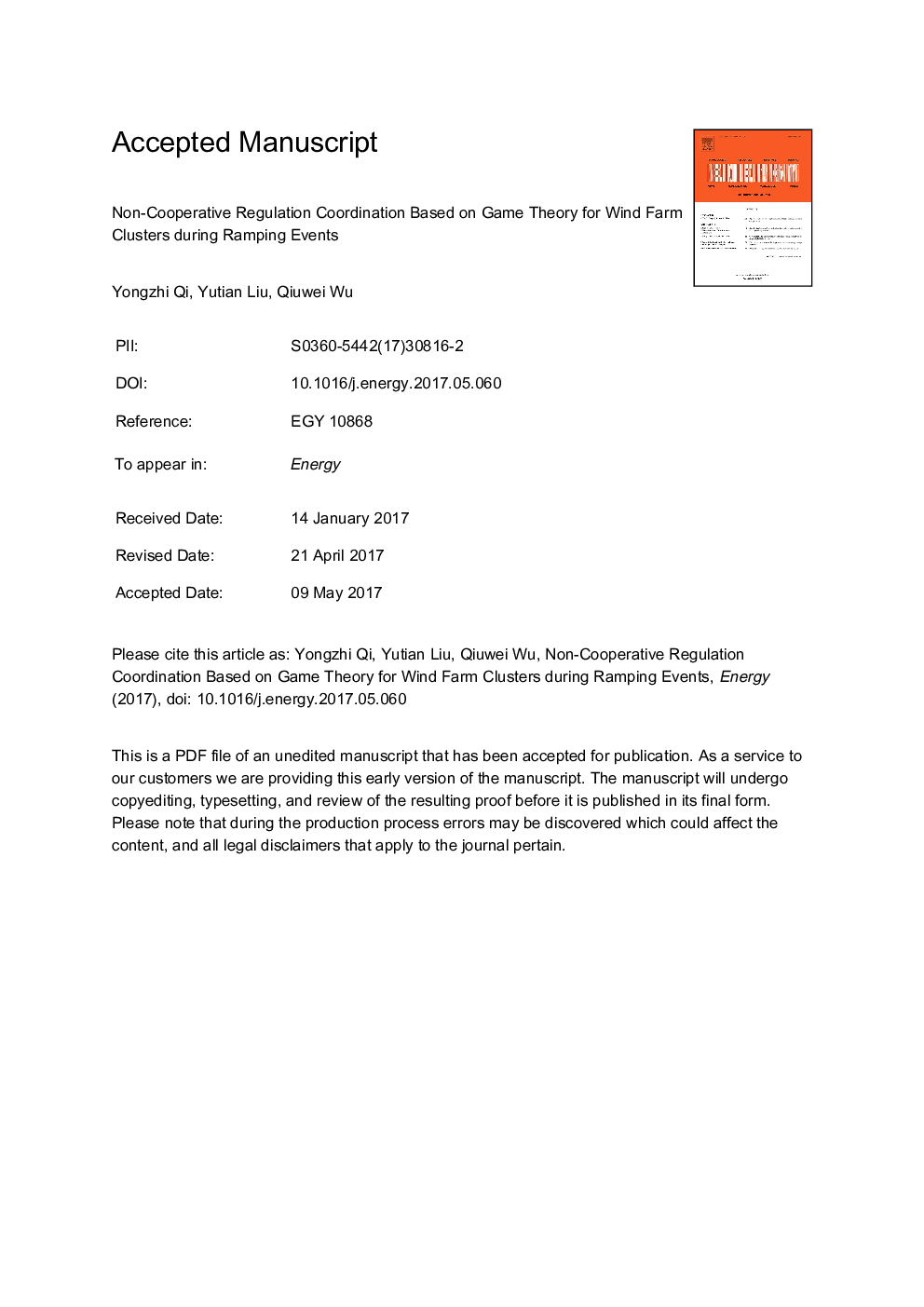| Article ID | Journal | Published Year | Pages | File Type |
|---|---|---|---|---|
| 5475684 | Energy | 2017 | 25 Pages |
Abstract
With increasing penetration of wind power in power systems, it is important to track scheduled wind power output as much as possible during ramping events to ensure security of the system. In this paper, a non-cooperative coordination strategy based on the game theory is proposed for the regulation of wind farm clusters (WFCs) in order to track scheduled wind power of the WFC during ramping events. In the proposed strategy, a non-cooperative game is formulated and wind farms compete to provide regulation to the WFC during ramping events. A regulation revenue function is proposed to evaluate the competition process of wind farms to provide regulation to the WFC which includes revenue of effective regulation (ER), power support regulation and punishment regulation. The multi-time-interval Nash equilibrium condition is derived for the regulation competition process of wind farms. By setting parameters of the regulation revenue function according to the derived Nash equilibrium condition, the ER strategy is the Nash equilibrium of the regulation competition. Case studies were conducted with the power output data of wind farms from State Grid Jibei Electric Power Company Limited of China to demonstrate the efficacy of the proposed coordination strategy during ramping events.
Related Topics
Physical Sciences and Engineering
Energy
Energy (General)
Authors
Yongzhi Qi, Yutian Liu, Qiuwei Wu,
